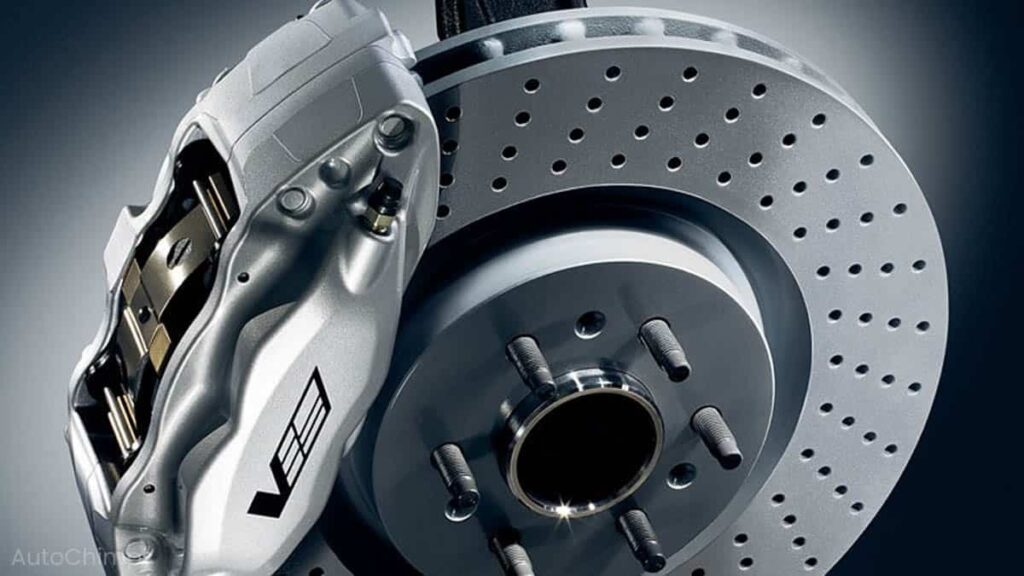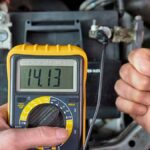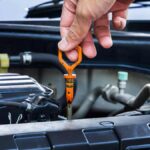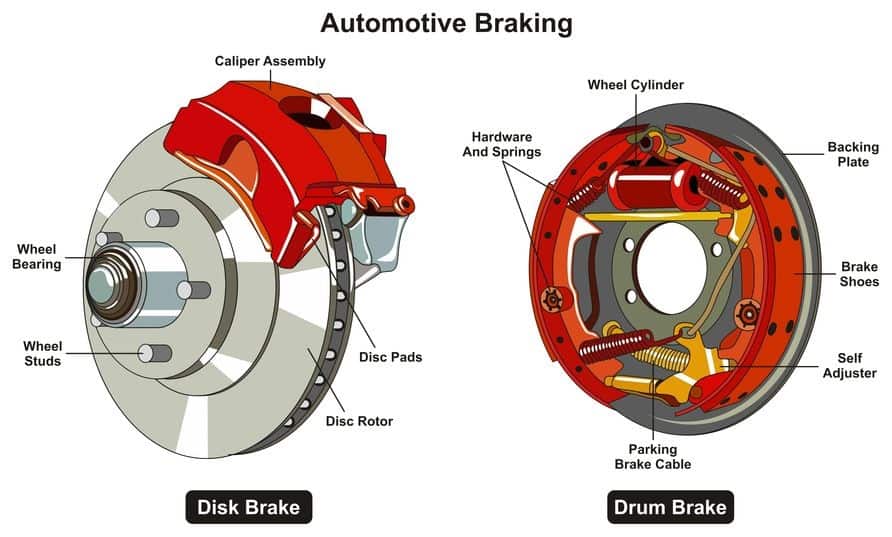
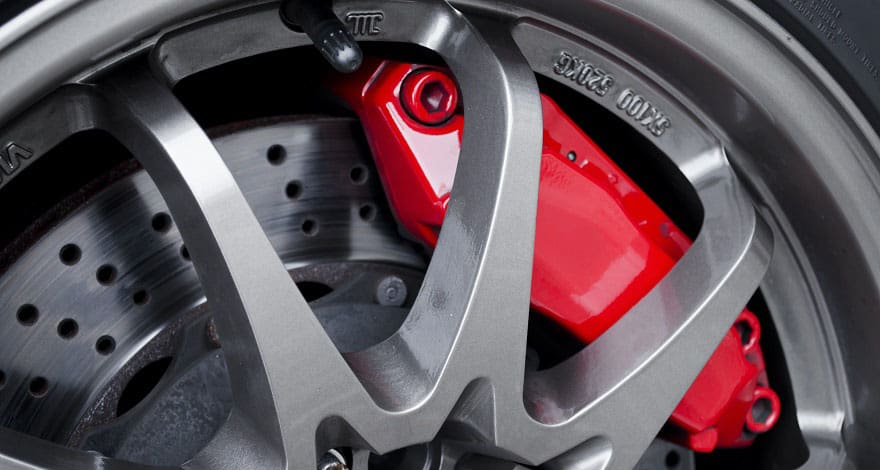
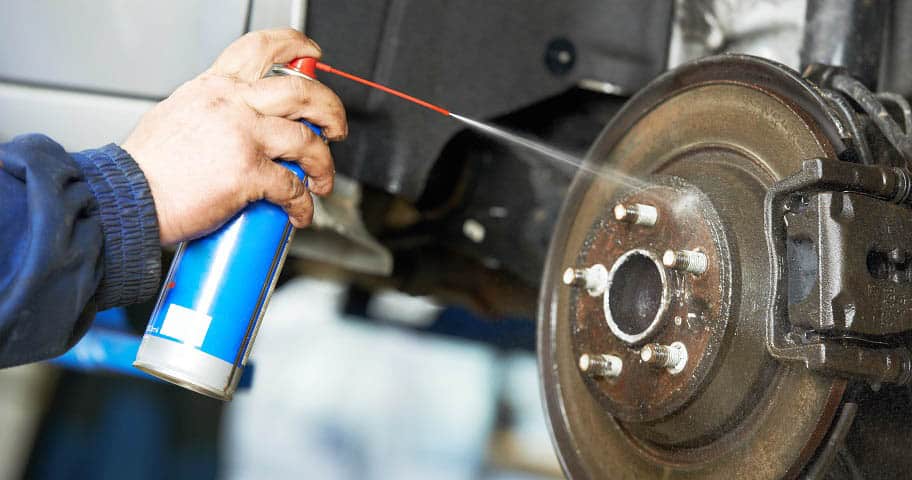

Why Are New Brakes Squeaking? Here’s What’s Up
Just swapped out those brakes and now they’re making a weird squeaking noise? No stress, this happens more often than one might think. If the question “why do my new brakes make noise?” has been bouncing around, this guide has got the answers.
Drum vs. Disc: What’s the Difference?

Drum Brakes
Drum brakes get their name from the drum-shaped housing they sit in. When the brake pedal gets pressed, hydraulic fluid pushes into a wheel cylinder, making two pistons move outwards. These pistons press against brake shoes, which have friction material on one side. When they make contact with the drum’s inner surface, it slows down the vehicle.
These brakes are mostly a thing of the past in modern cars, but some budget models still use them in the rear because they’re cheaper to make. The downside? They’re more complex and heat up faster, leading to quicker wear and tear.
Disc Brakes
Disc brakes work similarly but are a bit more straightforward. Pressing the brake pedal sends fluid to a piston that pushes against a caliper, which holds the brake pads. The rotor, a metal disc attached to the wheel, spins with it. When the pads clamp down on the rotor, that’s where the magic happens—friction slows everything down.
These systems are easier to maintain, have fewer moving parts, and deliver better stopping power. That’s why most new cars come with disc brakes.
Common Reasons for Squealing Brakes – And How to Fix Them

Before diving into fixes, it’s smart to figure out where the squeal is coming from. Roll down those windows and brake while listening for the sound—check which wheel is causing the ruckus.
Wet Brake Rotors
Moisture on the rotors is a big culprit for squeaky brakes, whether they’re brand new or old. When water sits on the brakes, it can cause rust. When braking, tiny rust pieces get stuck in the pads, leading to that annoying squeal. Luckily, this usually goes away after a few hard stops. If it sticks around, there might be a bigger issue.
Lack of Lubrication

This squeal often pops up in cars with drum brakes. If the pistons are pushing the shoes against the drum without enough lubrication, it can create a shrill sound as they scrape against the backing plate. To fix this, just pop off the drum and apply some brake lubricant where the piston meets the shoes.
Worn or Thinning Brake Pads
Even if the brakes are new, if the pads weren’t swapped out during a caliper or rotor change, they might be worn down. Brake pads typically last between 25,000 and 65,000 miles, depending on driving habits. Most pads have metal indicators that make noise when they get too thin. If that happens, it’s time to replace them or risk losing stopping power.
Glazed Brake Rotors
As rotors age, they can develop imperfections. If new pads don’t fit the shape of the rotors, squealing can occur. Rotors usually last between 30,000 and 70,000 miles. If they’re still good, a quick resurface might be all that’s needed, and many shops offer this for a reasonable price.
Brake Pads High in Metal Content

Sometimes, it’s just the brake pads themselves. If they have a high metal content, they might squeal as they rub against the rotor. There are organic options that are quieter, but they might not stop as well. Ceramic pads are the quietest and most durable, though they can hit the wallet harder.

